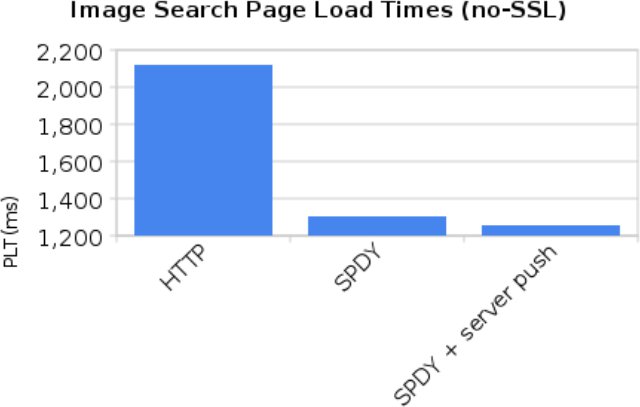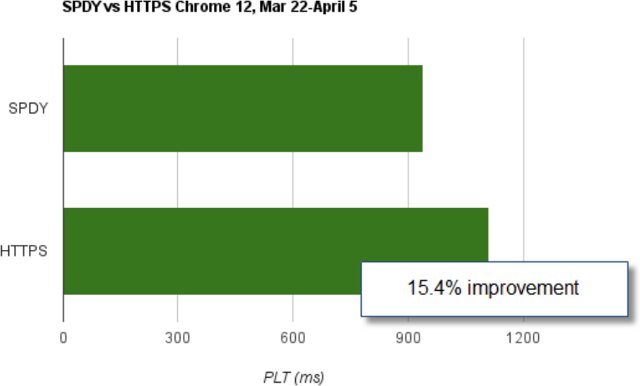SPDY (pronounce “SPeeDY”) is a new protocol designed by Google that aims at making the web faster and eventually replace HTTP.
This new protocol is not a new scheme, so it would be transparent to the user and there would not be a new spdy:// prefix and we would still be using http://. It will always be secure and use tcp port 443 instead of 80 (because of transparent proxies messing up with packets).
Most of Google products such as Chrome, Android Honeycomb (They can’t say if ICS is using SPDY…) devices and Google’s servers have already using SPDY protocol for some time, and Google reports some encouraging results. The tested 300 sites from the top 1000 Alexa sites and found an average 40% page load improvement.
They also reported some labs tests:


*PLT stands for “Page Load Times” in the chart above.
Google is not the only company using SPDY. Firefox has recently added SPDY support, so around 50% of the main browsers support it.
SPDY also needs to be implemented in servers and SPDY will be implemented in nginx and work is in progress to provide mod-spdy for Apache. Strangeloop, Amazon, and Cotendo are already using SPDY.
To learn more about SPDY, you can watch the 1-hour presentation below. It’s a tech talk so … well … it’s very technical.
You can also download the presentation slides.
The SDPY specification is still a draft. Here’s SPDY draft 2, but google is now working on draft-3 and plans to make it a IETF standard.
You can get further information (documentation and source code) at http://dev.chromium.org/spdy.
There are implementations of SPDY in Python, Java, Ruby, node,.js, Erlang and C. The C implementation is available at http://libspdy.org/index.html and will be used in libcurl.

Jean-Luc started CNX Software in 2010 as a part-time endeavor, before quitting his job as a software engineering manager, and starting to write daily news, and reviews full time later in 2011.
Support CNX Software! Donate via cryptocurrencies, become a Patron on Patreon, or purchase goods on Amazon or Aliexpress




